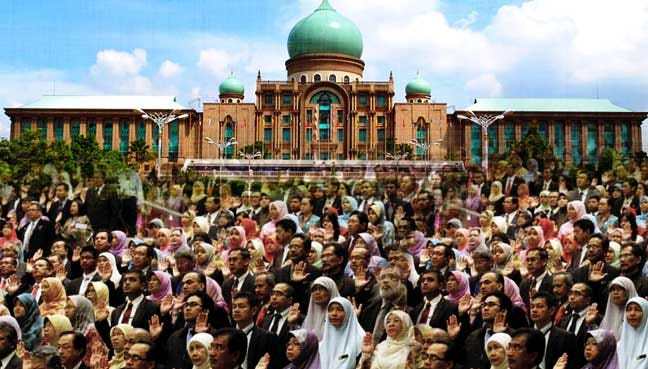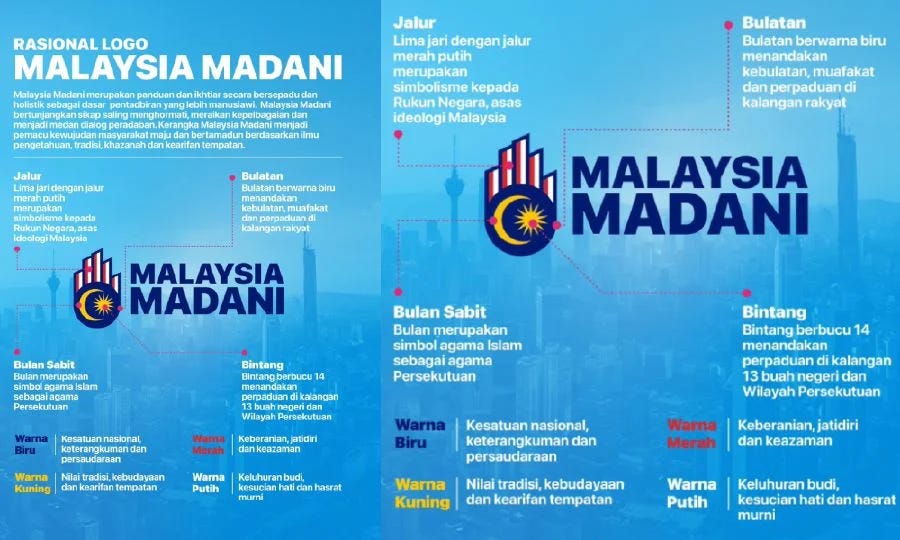Earlier this month, prime minister Anwar Ibrahim unveiled the Malaysia Madani logo.
The logo, no doubt the work of a top advertising agency, introduced shapes and colours which are purported to be metaphorical of Malaysia’s dignity and glory in the global arena. The shapes represent Rukun Negara, the nation’s guiding principles. The yellow signifies consensus, inclusiveness, and unity among Malaysians. The yellow signifies values, traditions, culture, and local wisdom. White signifies nobleness, purity of heart and goodwill.
The espoused values behind Malaysia Madani are sustainability, wellbeing, creativity and innovation, respect, confidence, and courtesy.
To achieve these high aspirations of Malaysia Madani, requires reform. Without reform, Malaysia Madani will follow Vision 2020, Islam Hadhari, and 1Malaysia to the scrapheap of history.
The key to reform is not policy. Reform is about emerging from a one-dimensional mindset, opening up to the universe of new ideas.
However, for as long as there is a ‘Malay agenda’ mindset within the current members of the civil service, there can be no Malaysia Madani, or reform that would help to create it. The civil service must shift from their ‘Ketuanan Melayu’ mindset, towards a ‘Ketuanan Malaysia’ mindset. Anwar himself said ‘Ketuanan Melayu’ will become ‘Ketuanan Malaysia’ in his administration.
There must be a cathartic move away from the present corporate culture, towards embracing the inclusive thinking, Malaysia Madani demands.
Developing creativity
The major ingredient for change demanded by Malaysia Madani is creativity.
This is a problem. The Malaysian civil service has not been designed with creativity, let alone, innovation in mind.
The Malaysian civil service is a patriarchal and rigid hierarchical organization, where power, privilege, status, and position are much more valued than creativity. Creativity is actually seen as a threat to the organization, as it destabilizes its leadership. Creativity is seen as dysfunctional and punishable. Creativity from a subordinate, potentially highlights the ‘incompetence’ of a superior.
The power-distance relationship in Malaysia is the highest in the world. This is a massive barrier to creativity, as its considered impolite to outshine a superior. However, changing this would threaten the patriarchy of the civil service, and create a culture of fear among civil servants at the rank of director and above.
This barrier can also be seen as a generational one, where the remaining boomers and Gen Xers, are against the rest.
This problem points to an inadequate education system, which needs to be fixed. Students must feel free to express creativity. Then the civil service must be redesigned in structure, process, environment, and corporate culture to advocate and reward creativity from its members, rather than punish this behaviour.
Policy is the manifestation of innovation, which itself is a product of creativity. Good policy, is good innovation. With creativity, policy options should be innovative, and be able to break out of the rigid paradigms presently existing within the civil service.
That’s why there must be diversity within the civil service, so new paradigms can be seen, identified and configured towards the Malaysian context.
Policy implementation is about solving problems. Making things happen. Thus, enhancing the abilities of civil servants to solve problems, once again goes back to an inadequate education system.
Ironically, the only prime minister who tried to reform the civil service, was Najib Razak and his government transformation program. He tried, but failed.
The best example of success was Singapore from 1965-75. This was managed by a small and elite top-down group, operating from what resembled a war room hidden away in a ministry building. Thailand brought in Michael Porter and his cluster theory, to teach the principles of concepts to all the nation’s civil servants for a week in a football stadium.
Just after Merdeka, Malaysia had a small civil service that was passionate and altruistic about the development of the nation. Specific expertise from junior officers by department directors was appreciated.
Now we have Malaysia Madani. We need to know how it will be implemented to change the corporate culture of the nation’s civil service.
Originally published in My Sin Chew 6th February 2023
Subscribe Below:






Very good, apt and should be applied. It will take time but it must be started now then no matter what it will come to fruition. A very good and productive article.